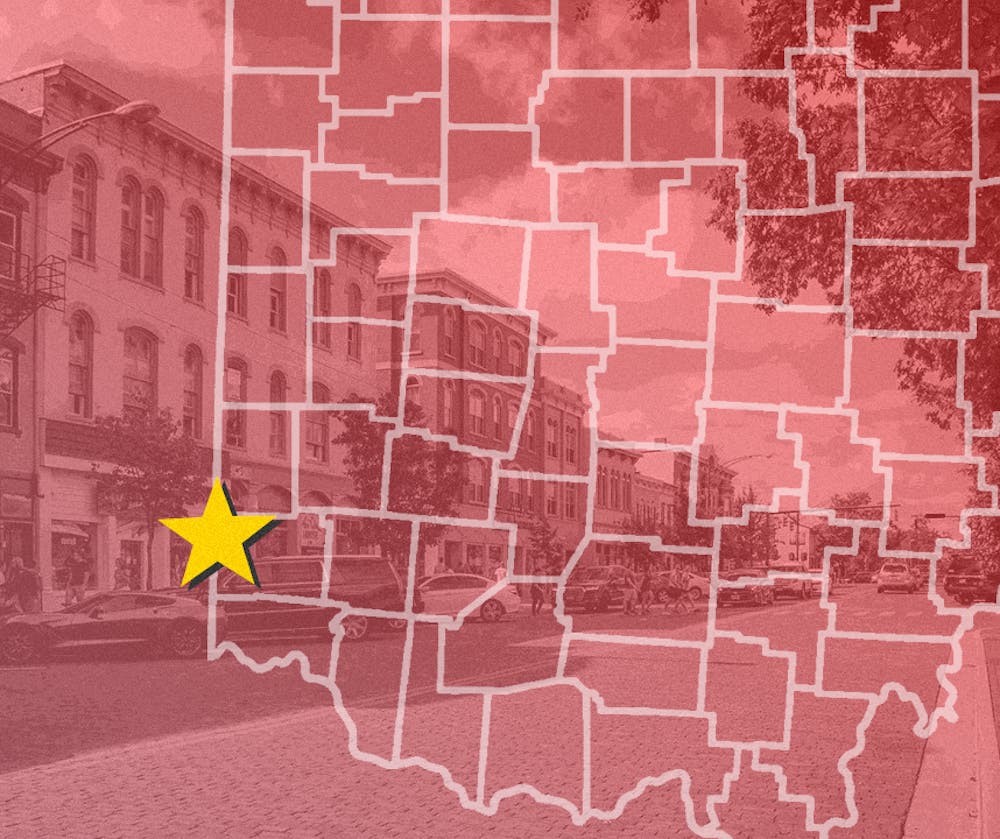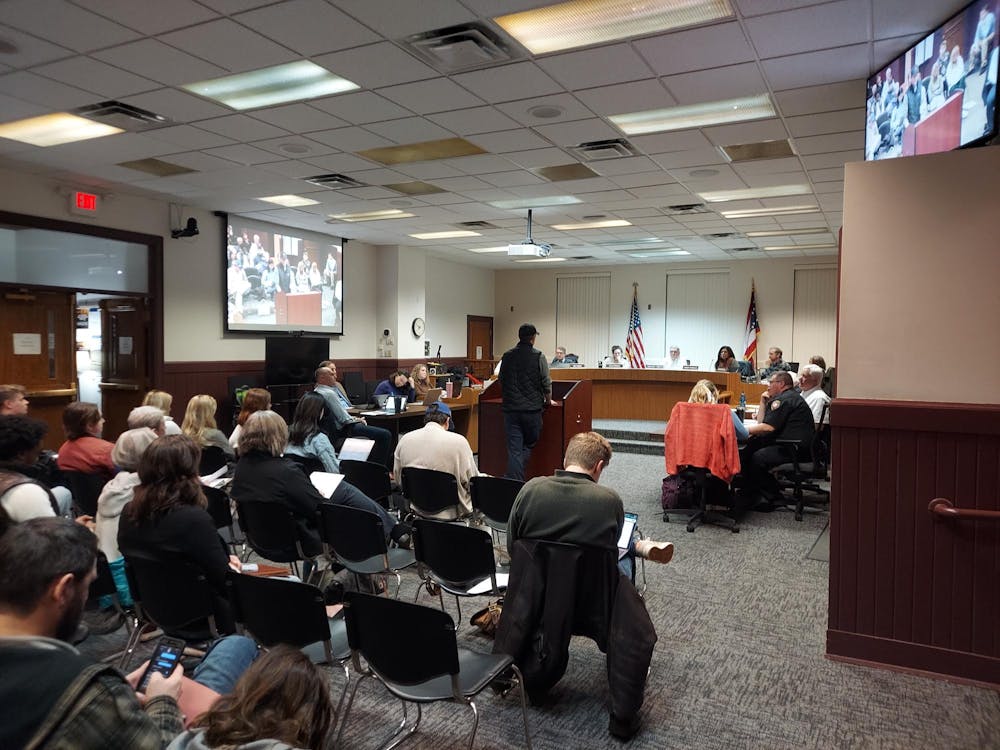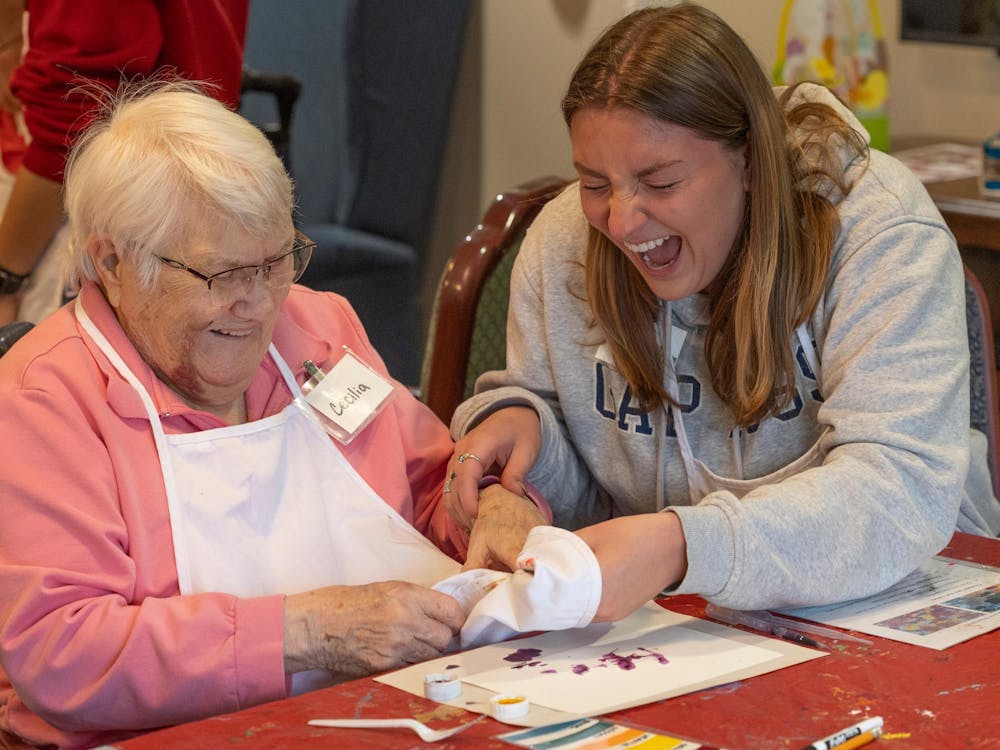Among the typical city purchases and development plans, Oxford City Council heard an unusual request with international ties at its last meeting. The resolution in question concerned the sovereignty of a small district in Eastern Europe.
The resolution presented to council called for Oxford to recognize Artsakh as an independent nation — something, as of Feb. 8, no United Nations member state had done.
Miami University senior Teresa Aniev, a political science major, helped explain to council the complicated history of the Republic of Artsakh, a disputed region landlocked inside Azerbaijan.
Artsakh is an area of land sandwiched between Armenia to the west and Azerbaijan to the east. The tension between the two countries has lasted for centuries, with Christian Armenians and Muslim Azerbaijans debating, and sometimes fighting, over who should control the Artsakh region.
Both countries have seen mass murders, with thousands killed in the conflict and thousands more displaced.
The majority of those that call Artsakh home are ethnically Armenian, and in the 1990s, Artsakh’s residents voted to become independent of Azerbaijan and become a separate republic. The Referendum on Independence, as it was called, passed with 99.9% in favor.
Despite the overwhelming majority vote, Azerbaijan does not recognize Artsakh’s sovereignty.
While the issues of Eastern Europe and the Middle East may seem far away, Aniev and Miami alum Andrew Devedjian, two Oxford community members who helped present the resolution, said Artsakh’s sovereignty still affects them and the Oxford community.
“With our hearts on our sleeve, we ask you to adopt this resolution,” Devedjian said, “which will give hope to, I’m not kidding, thousands of Armenians all over the country and specifically the two Armenians in this Zoom meeting today.”
After some discussion from council, Councilor David Prytherch proposed an amendment to the resolution that would remove the recognition of Artsakh’s sovereignty.
“I would be happy to stand in solidarity against the violence and recognize that there are politics, but I am just not in a position to make a decision one way or the other about recognizing, whether that’s right or best,” Prytherch said.
Devedjian said he understands Councilors’ hesitation, but other cities in the U.S. have recognized Artsakh’s sovereignty.
Enjoy what you're reading?
Signup for our newsletter
“There is no precedent until there is,” Devedjian said.
Both Aniev and Devedjian’s parents are from Armenia.
“It's not a matter of getting closer to our heritage,” Aniev said. “It's a matter of standing up for the little people and giving a voice to Armenian people who originally didn’t have a voice.”
Councilors voted to pass the amendment with two nays, four yeas and one abstention. Council passed the resolution unanimously with the amendment.
“You could see that they were uncomfortable, like we're dealing with an international resolution, I got it I really did,” Devedjian said. “So I think if anything, it really was an important lesson.”
Aniev and Devedjian said they plan to take what they learned from this meeting and apply it to future city council meetings in other cities.
“We're going to be working with other students, probably from conceivably the next X amount of years to get this passed in their own localities,” Devedjian said.
Devedjian said he hopes other students learn from his and Aniev’s experiences.
“If you have a cause,” Devedjian said, “no matter how big how small, all you need is one or two other people, and you can make the change that you want to see.”




